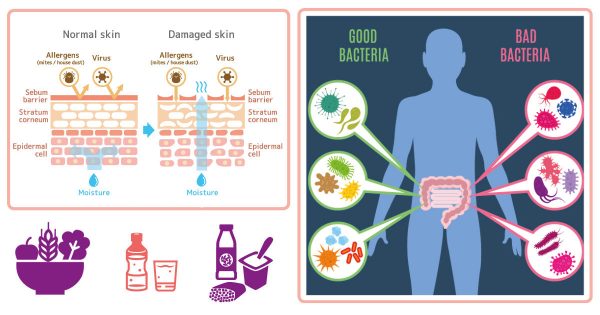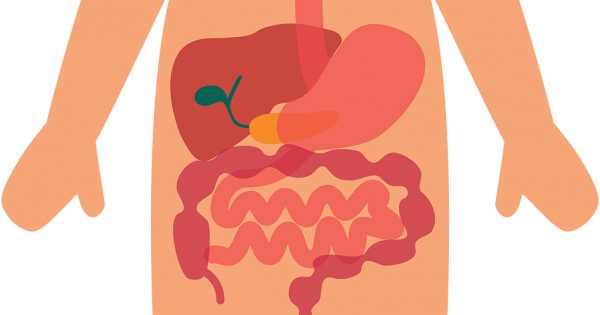What is a probiotic?
It refers to beneficial strains of bacteria that are present in food, which when ingested, can provide you with health benefits. Sources of probiotics include yogurt, tempeh, miso soup etc.
What is a prebiotic?
They are non-digestible carbohydrates which will remain in the digestive tract where they stimulate the growth of beneficial bacteria. In short, prebiotics are “food” for beneficial bacteria. Sources of prebiotics include fruits, legumes, and whole grains.
Your body is home to billions of microorganisms which reside on your skin, in your mouth, and in your gastrointestinal (GI) tract. These microorganisms often live in harmony with their host (in this case, you) and your GI environment (which includes the gut microflora or collection of microorganisms) plays a significant role in your health.
Your GI has a lot to do as it works to absorb nutrients while ensuring toxins and other potentially harmful bacteria or viruses are destroyed. This is where your gut microflora comes into the picture; it breaks down the food you eat and helps your body to digest fibres and carbohydrates by breaking them down. Your gut microflora typically includes a mix of both beneficial and harmful bacteria. One way to ensure a balance of both (80% good bacteria: 20% bad bacteria) is by supplementing your diet with pre- and probiotics.
Not a new science
Both prebiotics and probiotics are components that are present in certain foods, or they may have been added or incorporated into foods, and both provide you with health benefits due to their interactions in your GI. While the benefits of prebiotics have come to light in more recent years, recognition of probiotic effects dates back to the 19th century when the French scientist Louis Pasteur (1822 –1895) postulated the importance of microorganisms in human life; this was further reinforced by work done by 1908 Nobel Prize-winner Elie Metchnikoff.
The benefits of probiotics:
- Prevents the occurrence of rotavirus-induced or antibiotic-associated diarrhoea, and in the event it does happen, the duration is reduced.
- Alleviates problems with lactose intolerance.
- Reduces the quantity of enzymes that may promote cancer, and putrefactive (bacterial) metabolites in the gut.
- Helps prevent and alleviate possible GI tract problems in healthy people.
- Beneficial effects with inflammatory diseases of the GI tract, Helicobacter pylori infection or bacterial overgrowth.
- Helps with the formation of ‘normal’ stools in people who suffer from constipation or an irritable colon.
- Improves your body’s immune system by preventing infections.
Important factors to keep in mind
While prebiotics and probiotics play an important role in helping you maintain good digestive health, you should also adhere to the following:

- Maintain a healthy lifestyle and balanced diet. These are two of the main stays of good digestive health.
- Consume in moderation! If there are any side effects or uncertainties, consult your doctor at once. A possible side effect may be due to lactose intolerance (lactose can be found in cultured milk).
- Excessive fibre intake may occasionally cause bloating or constipation.
- Prebiotics and probiotics are also available as supplements. However, do get the advice of your doctor before you start taking them.
- Healthy digestive health leads to a healthy and productive life, and a peaceful mind. If you constantly have digestive problems (e.g. upset tummy, etc.) you tend to be less productive and may be constantly worrying about it.
An educational contribution by Digestive Health Advisory Board.







Comments